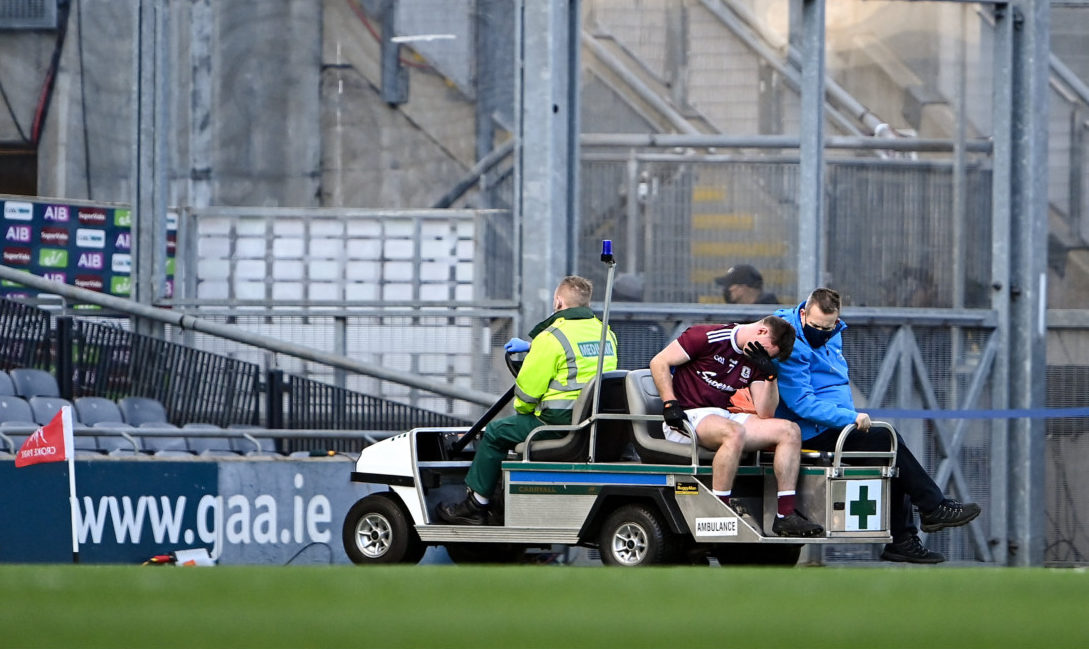ON Tuesday past I delivered a webinar for Deely Sports Science online to a large number of coaches from all levels of the game. The theme of the presentation was ‘taper your team to train smarter, not harder.’
I had taken inspiration for the idea from a tweet Marty Loughran, the well-renowned physio who has worked throughout Ulster. Marty tweeted a few weeks back about the volume of injuries he was dealing with from club players across the province as they launched themselves back into three nights a week of training from the off.
Marty made the point that if you feel you are going easy, then go easier. If you are contemplating challenge games already, you are crazy. It makes sense when you consider the vast majority of players returning won’t have been exposed to any of this type of training for the guts of seven months.
A lot of questions will be pondered by a coach or manager in the lead up to a season. Do we train less? Train more? Train longer? Do we train at a higher or lower intensity?
All these questions and more go streaming through the head of a coach or manager at this stage of the pre-season.
All clubs will be slogging long and hard throughout the pre-season and the temptation is there to keep a high volume approach to the sessions at this time of year, but in my honest opinion you should proceed with caution.
According to scientific evidence and studies conducted in the USA throughout the 1980s and ‘90s, actually shortening the volume of training sessions before a big game or event can actually boost performance, using the principle of tapering.
The biggest challenge though is convincing coaches and players of this. They both often wonder and worry that they might actually lose fitness during a period of reduced training, but in fact it’s the complete opposite.
Those aforementioned studies from America certainly dispelled that myth, and they actually showed that when the volume of training was reduced by as much as 67 percent and the intensity was retained, there was actually no loss of fitness for up to 15 weeks.
Tapering your training correctly has shown an enhanced boost in sporting performance by as much as 40 percent in some cases. Planning the perfect taper for your team leading up to a game is probably more experience than science, but there are some basic principles which should be set out:
– There are four different types of taper – linear, exponential, slow and fast and step.
– The taper should last roughly 10 days to two weeks.
– There should be a 40 percent to 60 percent reduction in training volume (time you train for) in the final week.
– Frequency (how many sessions) and intensity (how hard you train) should remain the same for the final two weeks.
– Do not forget that it’s quality not quantity that counts as the game gets closer.
– Taper does work but it’s the intensity that counts!
Training smarter not harder was the second part of the webinar and it’s vitally important when you are training smarter that you are training with a purpose.
Other things to consider when training smarter:
– Make the training player-centred.
– Make sure the ball is always at the heart of the session.
– Make training full of game-specific scenarios.
– Retain a level of high intensity in everything you do.
No matter whether you are tapering, training smarter or with savage intensity, one important matter still remains at the core of everything you do – recovery matters most.
Success is not how hard you train but how well you recover and when you consider it takes approximately 72 hours for a GAA player to recover fully from a match, how many coaches actually allow for this type of recovery?
I am convinced that a large percentage of the time at club level our players haven’t fully recovered from games or high volume and intense training sessions. Therefore they are simply not going to perform at their best either physically or mentally.
Receive quality journalism wherever you are, on any device. Keep up to date from the comfort of your own home with a digital subscription.
Any time | Any place | Anywhere












